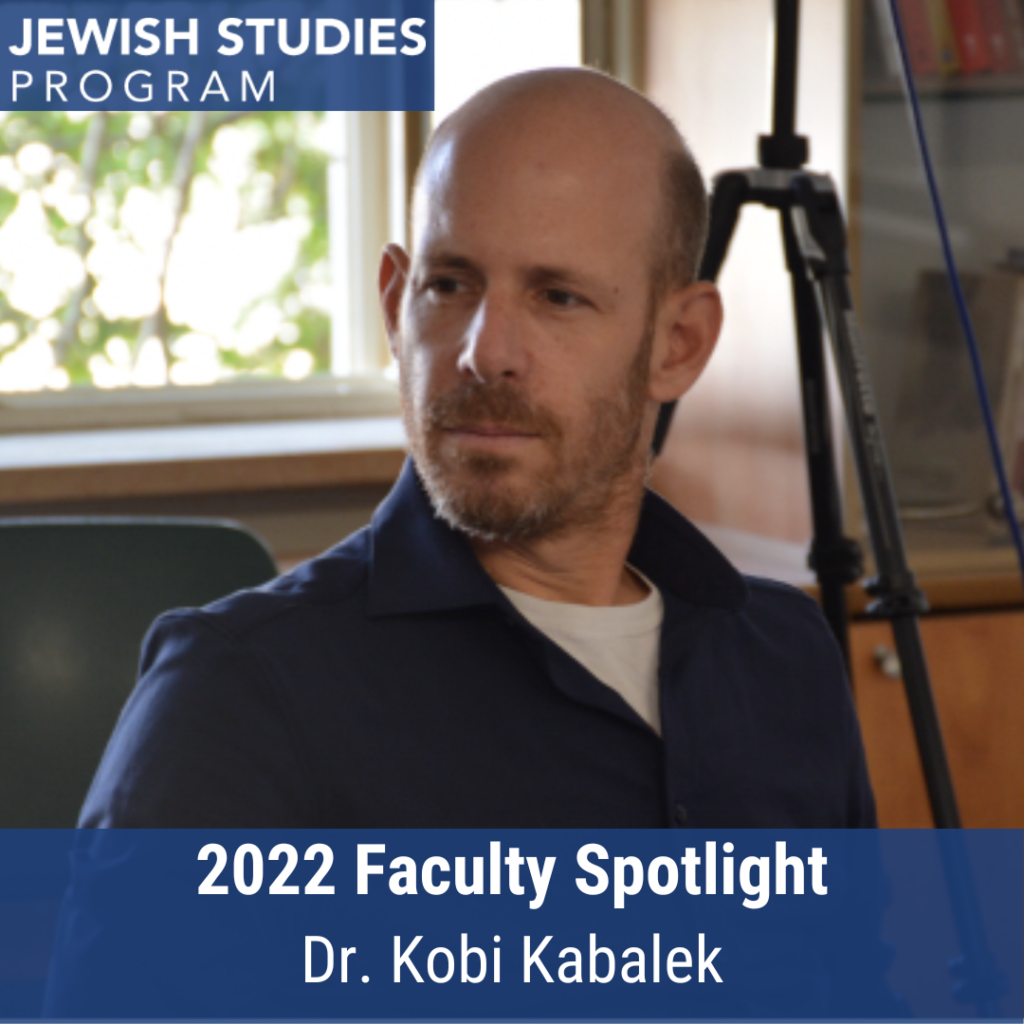
The Penn State Jewish Studies Program would like to spotlight our esteemed faculty member Kobi Kabalek. Kabalek recently published his research on Jews in Postwar Germany. When asked what inspired his research, Kabalek responded:
“I started working on this article while exploring how scholars, and people in general, organize knowledge and information to fit their preconceived notions of how the world is. The article does so by examining how Germans who rescued Jews during the Holocaust were portrayed in German societies after the war, from 1945 to the present. It traces the different ways through which Jewish and non-Jewish Germans defined rescuers as exceptions in order to conceive of and characterize the majority German population. Since we don’t have enough evidence to point to what most Germans did or thought during the war, in the postwar years people used such abstract assumptions as ‘the exception proves the rule’ to present a simplified generalization of the wartime conduct of the German majority by defining it as the opposite of the minority—the rescuers.
The piece presents the very different uses and interpretations using the interpretive model of ‘the exception proves the rule’ and their functions in imagining a favorable or critical collective self in various publications, political statements, memorials, films, etc.When working on this article, I was able to refine a few of my ideas in conversations with colleagues at Penn State, especially in the Jewish studies program. Moreover, teaching is a great way of testing preconceived notions and common-sense perspectives. As scholars we tend to be submerged in concepts and explanations that appear ‘natural’ or obvious but discussing them with students provides important insights into how acquired knowledge changes our perspectives and understanding. I, therefore, think that one of the most useful things we can do in class and beyond it challenges the very ‘truths’ that we hold on to so dearly. I recommend going out of our comfort zone, and actively exploring topics and questions that lie outside of our fields and interests. This is also why most of the courses I’ve been teaching at Penn State are Gen-Ed courses about genocide, the history and memory of the Holocaust, and literary and filmic depictions of the Holocaust, which bring together students from various departments and schools, from business to nursing, engineering to psychology, and create a fascinating collage and interaction between perspectives and standpoints.”
If you are interested in Kabalek’s research, he will be teaching GER 123 / JST/HIST 195 Genocide in a Global Perspective: 20th Century and Beyond as well as GER 083 German reactions to the Holocaust Thursdays from 9:05–10:20 a.m. in the fall semester of 2023.